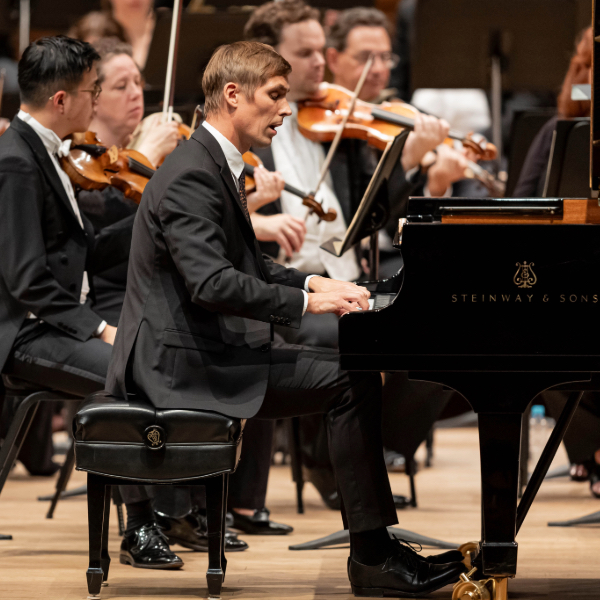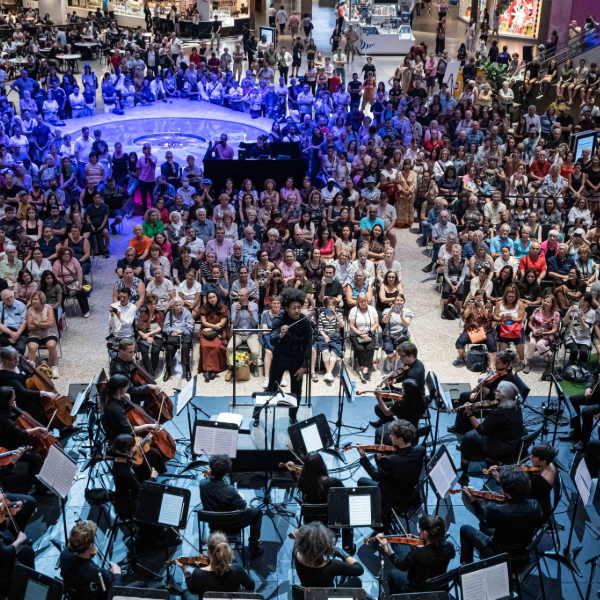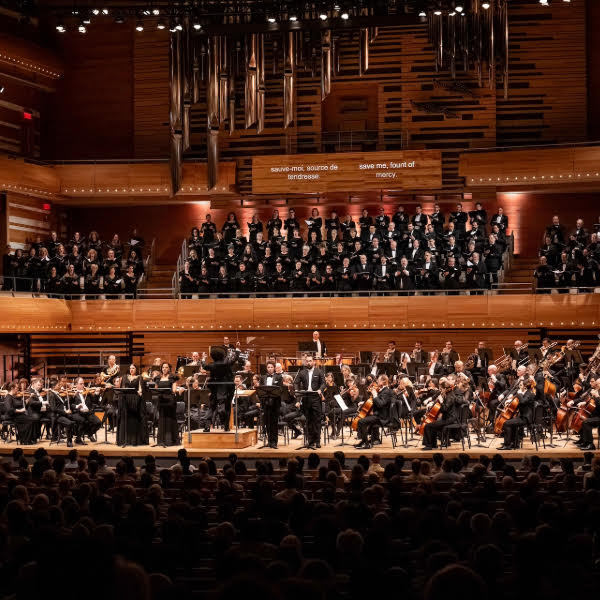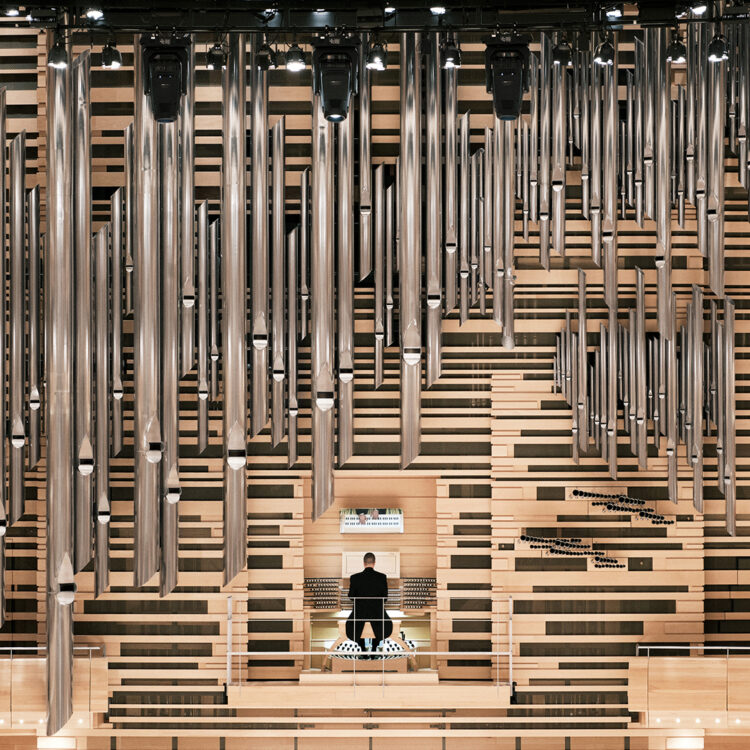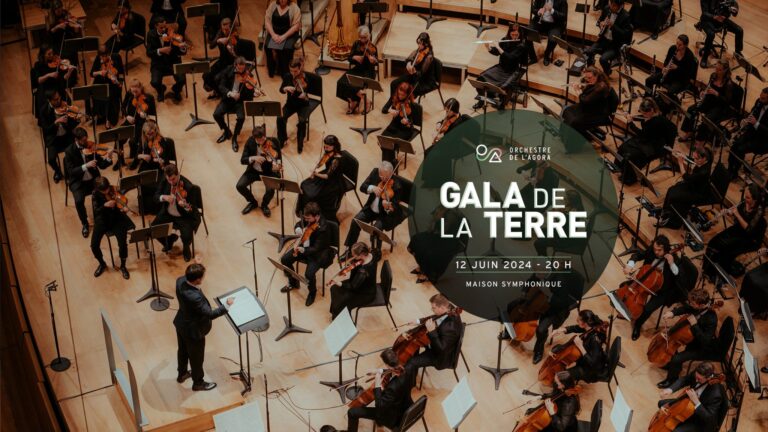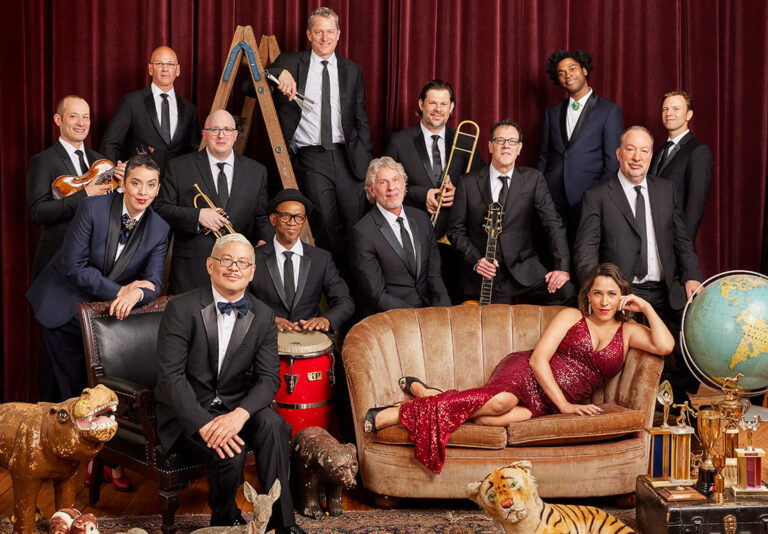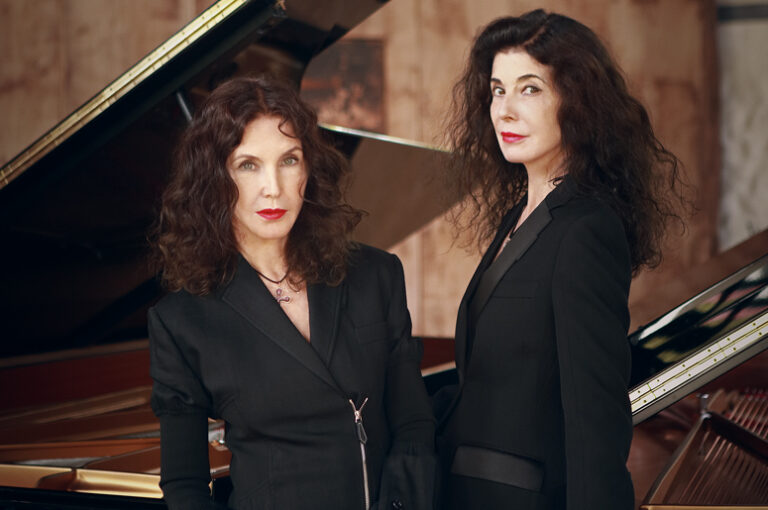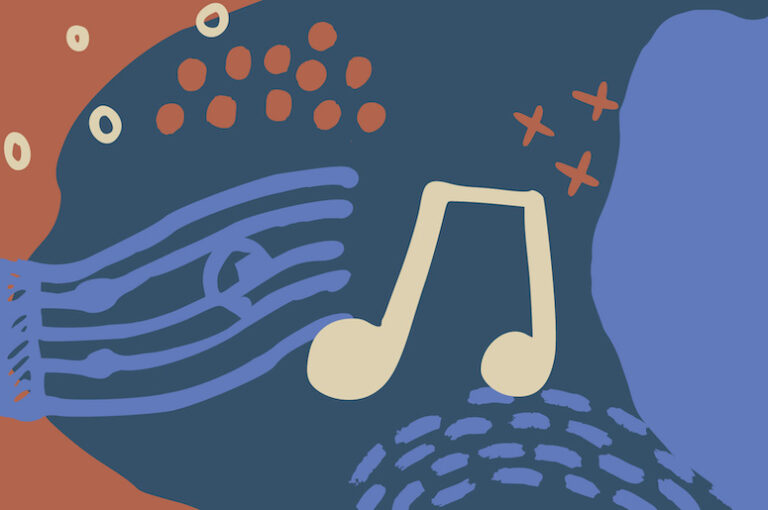L’Orchestre de l’Agora présentera le Gala de la Terre le 12 juin prochain à 20h à la Maison symphonique autour de la Symphonie alpestre de Strauss, sous la direction du chef Nicolas Ellis. La dernière édition ayant été récompensée par le Prix Opus de l’événement musical de l’année, l’Orchestre de l’Agora promet ainsi une nouvelle soirée musicale unique visant à sensibiliser les publics aux enjeux environnementaux, en soutenant les efforts d’organismes locaux dédiés à la protection de notre planète : le GREMM, WWF Canada et Sierra Club Canada.
La soirée débutera avec une création de la compositrice Claudie Bertounesque qui fusionnera l’orchestre, 75 choristes des Petits Chanteurs du Mont-Royal, électro-acoustique ainsi que des chants de bélugas recueillis près de Tadoussac grâce aux hydrophones du Groupe de recherche et d’éducation sur les mammifères marins (GREMM). La poète innue et ambassadrice de l’événement Natasha Kanapé Fontaine récitera également ses propres poèmes spécialement écrits pour le Gala de la Terre. L’Orchestre accueillera la soprano innue Elisabeth St-Gelais, récemment nommée Révélation Classique Radio-Canada et lauréate du prestigieux Prix d’Europe 2023, dans les magnifiques Wesendonck Lieder de Wagner. Plus de 100 musiciens seront sur scène pour la Symphonie alpestre de Strauss, une œuvre emblématique qui évoque la beauté de la nature et des Alpes tout en abordant des thèmes universels liés au cycle de la vie ainsi qu’à la beauté et à la fragilité de notre planète.
Lors de la dernière édition 2022 du Gala de la Terre bâtie autour de la 3e symphonie de Mahler, l’Orchestre avait rassemblé 200 musiciens et choristes sur scène, et 255 000 $ avaient été remis aux trois organismes bénéficiaires : UNICEF Canada, Conservation de la nature Canada et Sierra Club Canada, notamment grâce à l’appui de partenaires et donateurs qui sont de retour cette année encore, dont Canimex et Age of Union.
The Orchestre de l’Agora will present the Gala de la Terre on June 12 at 8pm at the Maison symphonique, featuring Strauss’s Alpine Symphony under the direction of conductor Nicolas Ellis. With last year’s edition winning the Opus Prize for Musical Event of the Year, the Orchestre de l’Agora promises another unique musical evening to raise public awareness of environmental issues, by supporting the efforts of local organizations dedicated to protecting our planet: GREMM, WWF Canada and Sierra Club Canada.
The evening will open with a creation by composer Claudie Bertounesque, fusing the orchestra, 75 choristers from the Petits Chanteurs du Mont-Royal, electro-acoustic music and beluga songs collected near Tadoussac using hydrophones from the Group for Research and Education on Marine Mammals (GREMM). Innu poet and event ambassador Natasha Kanapé Fontaine will also recite her own poems, specially written for the Gala de la Terre. The Orchestra will welcome Innu soprano Elisabeth St-Gelais, recently named Révélation Classique Radio-Canada and winner of the prestigious Prix d’Europe 2023, in Wagner’s magnificent Wesendonck Lieder. Over 100 musicians will be on stage for Strauss’s Alpine Symphony, an emblematic work that evokes the beauty of nature and the Alps, while touching on universal themes linked to the cycle of life and the beauty and fragility of our planet.
At the last Earth Gala 2022, built around Mahler’s 3rd Symphony, the Orchestra brought together 200 musicians and choristers on stage, and $255,000 was donated to the three beneficiary organizations: UNICEF Canada, Nature Conservancy of Canada and Sierra Club Canada, thanks in particular to the support of partners and donors who are back again this year, including Canimex and Age of Union.
POUR ACHETER VOTRE BILLET, C’EST ICI!
Ce contenu provient de l’Orchestre de l’Agora et est adapté par PAN M 360.
